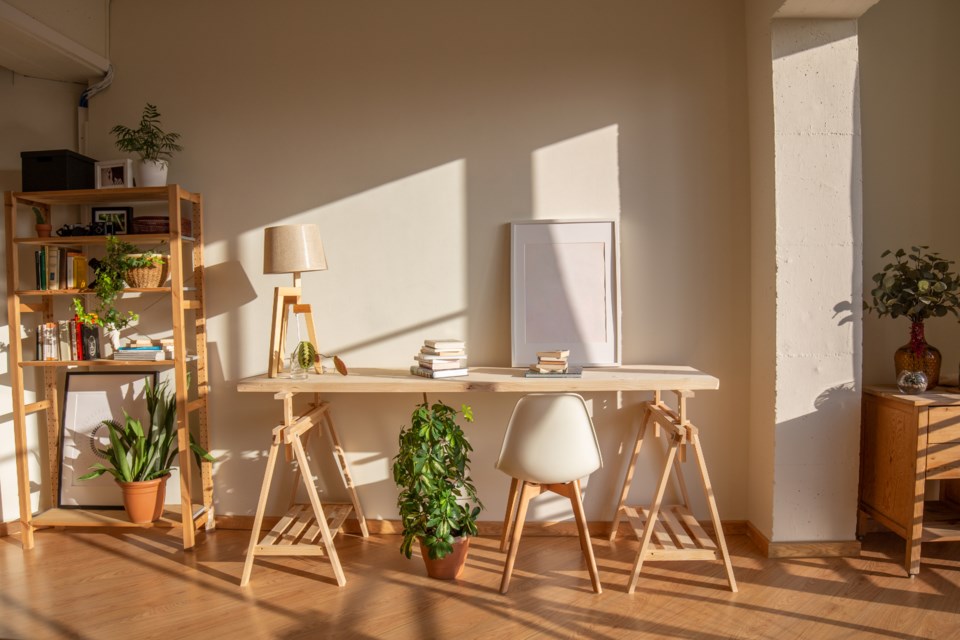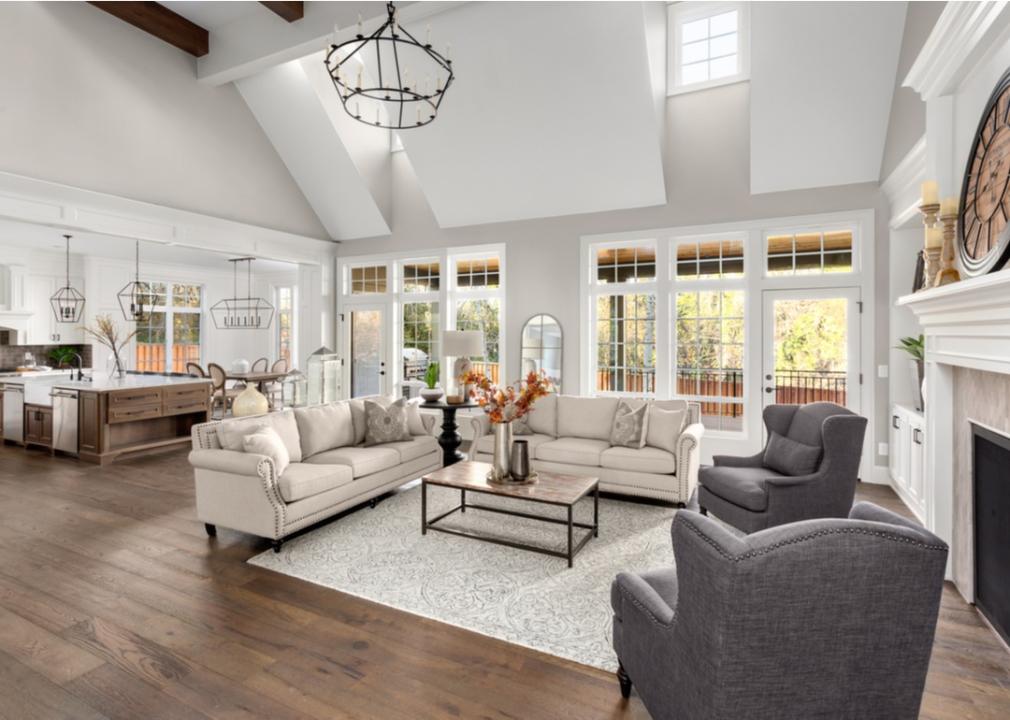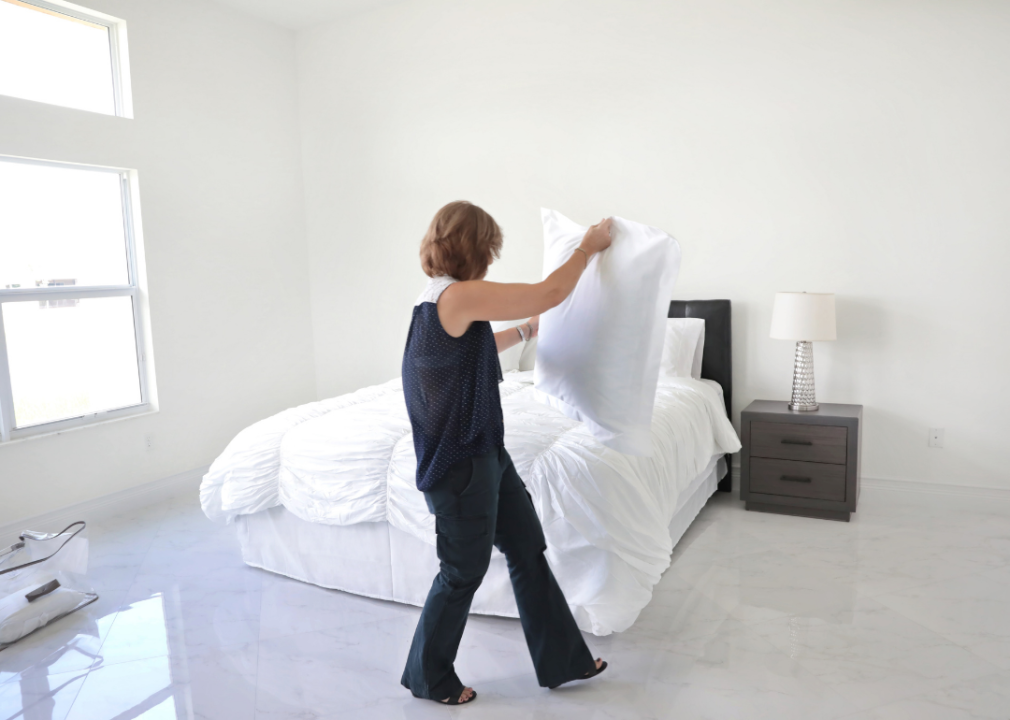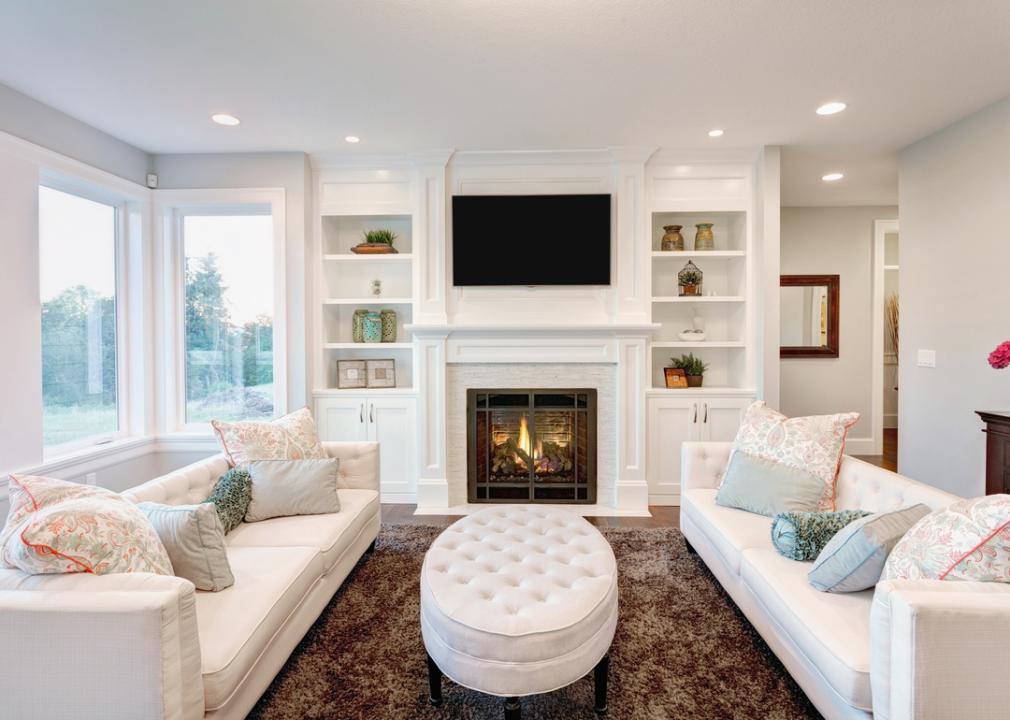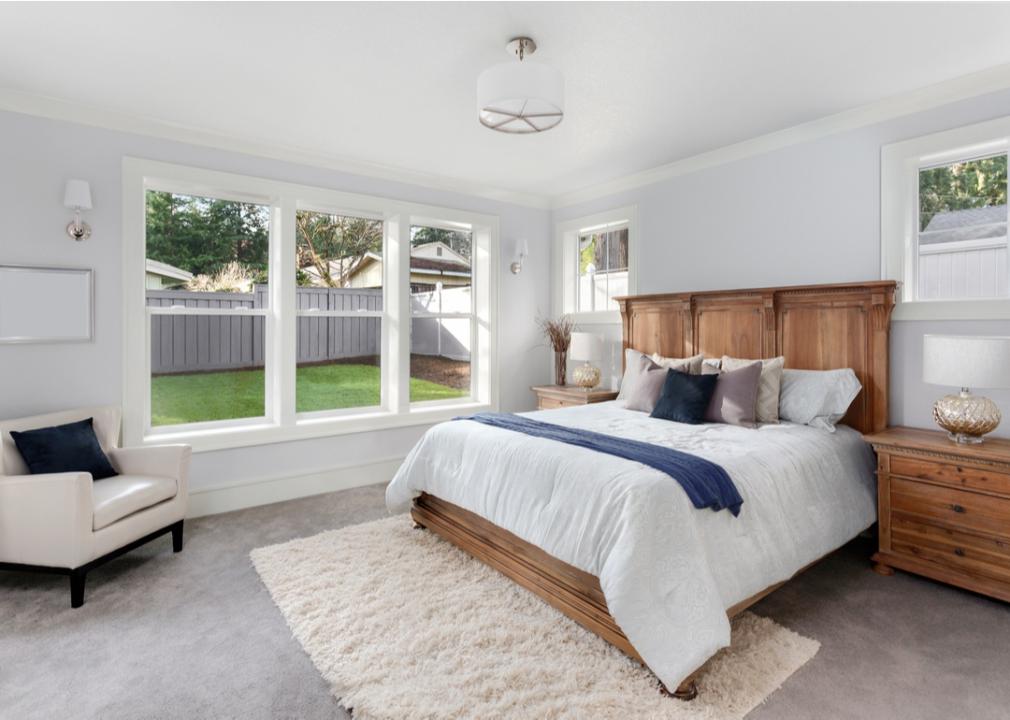The coronavirus flipped the housing market on its head, and, in particular, turned it into a seller’s market. However, this won’t go on forever and, eventually, the playing field will level out for everyone. This is where home staging can come in handy for sellers.
Home staging is an approach where sellers and real estate agents declutter and depersonalize a home to make it seem more appealing to buyers. Sometimes this involves removing or hiding personal items like family photos and clothes. It can also mean rearranging or replacing the owner's furniture with pieces that have more neutral colours or make a room feel roomier or more welcoming. This allows buyers to picture themselves living in a home and making it their own.
While sellers and real estate agents can hire staging services, if you’re on a tight budget, you can stage your home yourself and save some money. This can involve simple approaches such as putting quirky, religious, and political decor in storage, pointing your mirrors toward natural light to make rooms look larger, and painting your home with more neutral colours.
These simple tips and tricks can not only help you sell your home faster, but they may even drive up the dollar value of your home.
To help you learn more about the benefits of staging, real estate platform ZeroDown used data from the National Association of Realtors’ 2021 Profile of Home Staging to compile statistics on home staging. Here’s what real estate agents have to say about it.
Followtheflow // Shutterstock
31% of sellers’ agents stage all of their homes
While nearly a third of sellers’ agents claim they stage all the homes they’re trying to advertise, 13% stated they only did so for homes they were having a difficult time selling. Of the 42% of sellers’ agents that did not stage homes, these respondents still reported that they recommended that the sellers clean and organize their homes as well as address issues with the properties.
Staging a home can help create an emotional appeal to potential buyers. This kind of emotional attachment may inspire them to see homes in a different light—a fresh project ready for their personal touch—and consider buying a place they might not have otherwise considered. This can be especially important if the home is located in an area that some buyers might not find attractive or if it has features that are difficult to market. For instance, if a home is small, agents can use staging as a way to make it seem more open and airy.
Breadmaker // Shutterstock
A living room is the most popular room for staging
About 90% of sellers’ agents who staged a home prioritized the living room. This lined up with the buyers’ perspectives as well—46% believe staging the living room was among the most effective appeals, followed closely by the main bedroom at 43%. The kitchen came in third for buyers at 35%.
This may be because living rooms are one of the most frequented shared spaces in a home. People want to be able to envision their family relaxing in front of the TV, having guests over, or spending quality time together. After the living room, the other most popular areas of a home for sellers to stage are the kitchen, 80%; main bedroom, 78%; and dining room, 69%.
Canva
49% of real estate agents used a staging service
Staging services can help real estate agents prep a home so the seller or agent won’t have to do it themselves. For a fee, staging services can not only help sellers better organize their home for a clean look, but they’ll also help to depersonalize the home so that buyers can more easily see themselves living in it.
For instance, a staging service may have you put away memorabilia, family photos, knickknacks, or certain pieces of art. Hiring a staging service can be expensive, however, as the National Association of Realtors found the average amount that was spent was $1,500. On the other hand, when sellers’ agents staged the home, it typically came out to around $300.
Breadmaker // Shutterstock
Staging can help increase the dollar value of a home
In the National Association of Realtors’ survey, 23% of sellers’ agents stated that buyers tended to offer 1% to 5% more when homes were staged as opposed to similar homes that were not staged. However, 18% of respondents stated that staging a home brought the value of it up even higher, between 6% and 10%.
While more than a quarter of those surveyed claimed they weren’t sure whether staging a home impacted the dollar value, none stated that it had a negative impact. This demonstrates that while sellers may have to pay a bit to stage their homes, in the long run, it may help them make more money off their homes, or at the very least it won’t decrease the values. For instance, if a seller’s home is worth $300,000 and $1,500 was spent on a staging service, even if it increased the home’s value by 1%, that $3,000 would more than cover the costs of a staging service.
Andy Dean Photography // Shutterstock
53% of sellers’ agents noticed a decrease in the time a staged home spends on the market
How long a seller’s home remains on the market depends on a variety of factors, including market conditions and demand. When it comes to staged homes, some real estate agents noted that staged homes tended to stay on the market for less time than homes that weren’t. Only 17% claimed that they saw an increase in time for a staged home to sell.
As for the remainder of respondents, 17% believed it did not impact how long it took to close a deal on a home, while 14% said they weren’t sure how home staging impacted the timeline.
Breadmaker // Shutterstock
Removing pets from a staged home is a common tactic real estate agents recommend
Aside from cleaning and decluttering, 81% of real estate agents indicated that the most common staging tactic is removing pets during showings or when photos and videos are taken of the home.
Removing a pet further depersonalizes a home for potential buyers, making it much easier for them to imagine how their family would live there. Just because you love and adore your pets, it doesn’t mean that a potential buyer will feel the same way. Keeping your pet somewhere else, particularly during a showing, may also be in the best interest of everyone as a pet may prove distracting. A pet may also not react well to strangers coming into the home, which could create a needlessly stressful situation for everyone.
Studio Romantic // Shutterstock
24% of sellers’ agents believe staging a home is more important in the era of the coronavirus
The coronavirus changed the way real estate agents sold homes, with many sellers and buyers going virtual as opposed to touring homes in person. As a result, even more emphasis was placed on how a seller’s home looked in photos and videos when potential buyers could not be there in person to explore.
Buyers’ agents felt similarly about staging homes during the pandemic. According to the study, 31% of buyers’ agents felt that staging a home was of equal importance during and outside of the pandemic. Of the buyers’ agents who responded to the National Association of Realtors’ report, 83% said that having photos accessible to potential buyers on their listings was an essential asset for buyers, while the impact of videos came in at 74%, and virtual tours at 73%.
This story originally appeared on ZeroDown and was produced and distributed in partnership with Stacker Studio.

